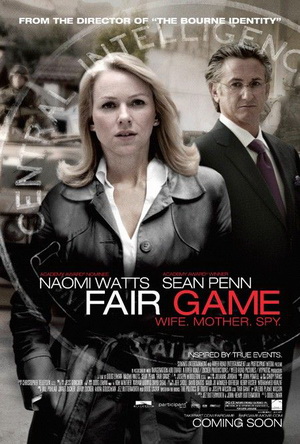
When news came out that Valerie Plame was outed as a CIA operative by Robert Novak in a Washington Post op-ed in July 2003, it was a terrible feeling. I worked at The Post and was surprised that editors hadn’t caught it and/or didn’t take it out. Novak was beyond the pale to have named her because of what some administration official had leaked. I had sympathy for her life and ruined career but didn’t know much beyond that. For sure, Plame and her husband Joe Wilson’s fight against the Bush administration for being, they believed, the source of her outing (presumably as payback for his suggestion that White House intelligence was false) was an uphill, unpopular battle then. And many criticized their “conspiracy” theory and the Vanity Fair article and photo of them sitting in a convertible with Plame in scarf and sunglasses. But in the end their firestorm did eventually unearth who exposed her: the deputy secretary of state at the State Department.
Regardless where you stood then, “Fair Game” is a captivating and powerful movie. Part spy thriller and part political expose, it holds one’s attention from start to finish. Following events leading up to the invasion of Iraq in 2003, it reminds us of the trumped-up charges on weapons of mass destruction that the Bush administration made as its reason for going to war. Reliving it will make you feel as mad as hell but should be required viewing for all Americans.
With good performances from Naomi Watts and Sean Penn (even Sam Shepard makes a small appearance!), director Doug Liman’s taut film moves beyond a typical pulled-from-the-headlines story to being an intriguing chronicle of the times and story of an agent’s life blown. I hesitated to see the movie, since it had been so prevalent in the news, but it turned out to be more than just a plodding recap, delving deeper behind the intense consequences at stake.
ps. Check out Valerie Plame’s comments on the movie here and The Washington Post’s thrashing of it here.
